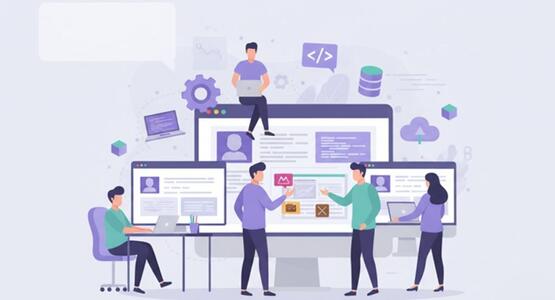
In a digital era where our lives are increasingly mobile, understanding how to build robust, user-friendly applications is more vital than ever. Whether you’re simply curious about how an app is made, or you are contemplating a career change into tech and looking for structured learning, a mobile app development course offers tremendous potential. This article explores everything you should know about mobile app development training: the skills you will gain, the platforms you will work with, the career possibilities that open up, how to choose the right course, and how to prepare yourself for success. The information herein reflects the approach and values of the training provider I represent — a hands-on, industry-aware institution that emphasises real experience, global certification and job placement support.
When you unlock mobile app development you are embracing one of the fastest-moving segments of technology. Every time you pick up your smartphone and open an app, behind the scenes there are layers of design, code, user-experience, hardware constraints, platform differences and deployment logistics. Learning these layers gives you real power. Not only can you create something useful, but you can position yourself in a job market hungry for tech-skilled individuals. A mobile app development course is not just an educational product. It is a gateway. It often starts with fundamentals like HTML5, CSS and JavaScript for beginners, and advances into Android Studio or Xcode for building native apps. The course I represent emphasises practice with platforms such as PhoneGap, Cordova, Ionic, Flutter and React Native. These tools enable you to work across Android and iOS, which is essential because modern apps often target both platforms. On successful completion you earn a globally recognised certificate, you may work on live projects and you gain access to job opportunities via our partner network. This builds trust because it demonstrates both expertise and the institution’s commitment to your outcome.
In a well-designed mobile app development course you will experience a progression from basic to advanced topics, all in a structured way. You begin by revisiting foundational web technologies: HTML5, CSS3 and JavaScript (including ES6 syntax) which form the backbone of many hybrid and progressive web apps. Then you move toward mobile-specific development environments: Android Studio for native Android apps, Xcode for native iOS apps, and cross-platform frameworks such as Ionic, Flutter and React Native which allow you to write once and deploy on both Android and iOS. Along the way you will study concepts such as user-interface design, app architecture, state management, debugging, performance optimisation and deployment to app stores. Importantly you will also gain experience with live projects under instructor guidance. For example, you will write clean modular code, document your workflows, collaborate in a team environment, and deliver using industry-standard tools. This real-world exposure is one of the most crucial aspects of your training because theory alone seldom prepares you for production-level challenges. Moreover you will explore best practices for app usability, differences between mobile device hardware, network conditions, security concerns, and how to maintain and update apps after launch. Finally, in many courses you will also receive job preparation support: interviewing as an app developer, writing your portfolio and perhaps even placement assistance. Such all-round training supports your credibility in the marketplace and builds trust among employers.
Choosing the right mobile app development course is more than comparing fees. You need to evaluate how the course is structured, the quality of the faculty, how much hands-on training is included, how up-to-date the curriculum is, and what job-outcome support is available. First ask yourself: Does the provider teach current technologies like Flutter, React Native, Ionic, as well as Android Studio and Xcode? A course that only focuses on older tools may leave you less competitive. At our institution we make sure learners are introduced to Android Studio, Xcode, Ionic, Flutter, React Native and more. We emphasise that “practice is a significant part of learning” and students work on live projects. Second ask: Are the instructors active, with real-world experience? A course led by faculty who simply lecture will not equip you for the actual demands of app development. At our academy the instructors are from mobile app development and web-design backgrounds, they update themselves so students learn what matters now. Third ask: Does the institution offer global certification and job support after course completion? These features add authority and trustworthiness to your investment. In our case, students receive globally recognised certification and have the opportunity to work with the partner company or on global clients. Fourth ask: Are the batch schedules flexible and are students supported after they finish? An academy that offers ongoing alumni support, access to a library of study material and job-placement guidance makes a difference. In our case we provide both soft-copy and hard-copy study resources and maintain alumni support well beyond the course finish. Finally ask: What is the cost and duration? A twelve-month immersive mobile app development course is a realistic timeline to go from beginner to employment-ready status when you work diligently. A course that is too short may only cover the surface. At our academy the mobile app development course runs for twelve months, including guided practical experience and live-project work. Choose a course that aligns with your goals: are you a complete beginner, or do you already have some programming background? Does the course adjust accordingly? A good course will speak clearly about entry requirements and will cater to beginners and upgrade learners alike.
Once you complete your mobile app development training you open up multiple career paths. You could become a full-time mobile app developer working for an IT firm, you could work as part of a startup team building apps for niche markets, you might offer freelance development services to clients, or you may even build your own app and monetise it. The demand is global and growing. Every day new mobile apps are launched for e-commerce, health, education, entertainment, productivity and more. With mobile devices now a dominant platform for user interaction, companies place high value on developers who can deliver intuitive, high-performing mobile solutions. Because mobile development often involves cross-platform skills and knowledge of multiple frameworks, your broad training gives you an edge. Further, when you’ve worked on live projects and demonstrated your ability to deliver end-to-end apps, your portfolio will matter. For employability you will need to demonstrate not only coding skills but also your understanding of user experience, performance optimisation, store deployment, version management and maintenance. With the right preparation you may qualify for roles such as: junior app developer, mobile software engineer, cross-platform app developer, or hybrid app specialist. Freelancers may charge for app development services, plugin customisation, maintenance contracts. Entrepreneurs may build an idea into an app and launch it, finding users and monetising via subscription or ads. Because your training set gives you both the technical skills and confidence to operate in a real-world environment you are well placed. Job-guarantee or placement-support features of a training institution enhance your prospects further. At our academy we partner with a sister organisation and global clients to help students transition into professional roles, which reinforces trustworthiness for learners.
Success in a mobile app development course is not simply attendance, it is active learning and output. To get the most out of your training you should adopt a growth mindset, practice consistently and engage with projects. Start by mastering the fundamentals: ensure you have a comfortable understanding of HTML5, CSS3 and JavaScript. You may begin by tinkering with small web-apps, then progress to simpler mobile apps. Familiarise yourself with IDEs like Android Studio and Xcode, and later explore cross-platform frameworks such as Flutter and React Native. While you learn, make sure you build a portfolio of meaningful projects: simple apps that solve real problems, or replicate functionality you admire. This not only reinforces your learning but also gives you tangible evidence of your capability for employers. Seek feedback from instructors and peers, debug issues, reflect on performance, and iteratively improve. Focus on writing clean, modular code and documenting your process. Engage with the app stores: understand how app distribution works on Google Play and Apple App Store. Understand version control, app signing, testing on multiple devices, performance considerations and user-experience best practices. All of these are often under-emphasised but critically affect real-world success. At our institution we emphasise that “practice is a significant part of learning” and therefore our students handle live projects under supervision. Keep in mind that the field does not end when you graduate. Technology evolves rapidly. Frameworks change, hardware advances, new OS versions roll out. Lifelong learning is required. Among the alumni of our mobile app development course you will find individuals who started with little or no coding experience and now work on cross-platform apps for global clients. You may also find freelancers who built their own app business. Listening to their stories gives a reality check: success comes with consistent effort, willingness to learn, and the right training environment.
Many prospective learners ask: Can I join if I have no programming experience? Yes. A good mobile app development course addresses beginners by starting with basics and leading up through advanced topics. Our academy states clearly that while it helps to have some knowledge of HTML, CSS and JavaScript, we also cater to absolute beginners with basic computer skills. Another question: Which platform should I learn first, Android or iOS? Both have unique features and markets. Typically you might start with Android as it covers a wide range of devices and uses Java or Kotlin which are widely used. Then you might pick up iOS using Swift or Objective-C. A modern course will cover cross-platform frameworks so you are not restricted by a single platform. Our course includes modules on Android Studio and Xcode along with frameworks like Flutter and React Native. A further question: How long will it take me to become employable? While timelines vary, a dedicated training programme of around twelve months can make you job-ready given consistent effort. The institution I represent uses a twelve-month duration for the mobile app development course, combined with live projects, global certification and placement support. One more question: What about cost and value? Cost varies between institutions; important is the value you receive: industry-current curriculum, hands-on practice, certification, job support. At our academy we emphasise economical pricing while ensuring global certification and live-project exposure. In practical terms you should also ask: Are there batch timings that fit? Are there job-placement records or alumni testimonials? Are resources ongoing (library, support, community)? At our academy we maintain a strong alumni list and provide continued support after course completion. This builds trust and shows the institution’s commitment beyond the classroom.
A mobile app development course represents more than a certificate. It is a stepping stone into a dynamic and growing technology landscape. If you are prepared to engage with practice, embrace learning, and build meaningful projects, you can position yourself for a rewarding career. Choose a course that uses current tools, offers live project work, supports your transition into employment, and is delivered by instructors with real-world experience. The path is challenging, but the reward is significant: the ability to build applications that millions of people may one day use, to join a tech industry that values what you can do, and to open doors to roles you may have only imagined. If you are at the beginning of your journey or looking to upskill, this moment may be the one to start.

Programming & Development Course: Building Your Future in Web Development

Website Design and Development Course

Why a Mobile App Development Course Helps You to Grow

How a Coding Institute Helps Grow Mobile App Skills

Future-Ready Skills at Basic Computer Courses Institute

Top Benefits of Learning Basic Computer Courses Today

Upskill at the Digital Marketing Academy for Builders

Guide to Picking the Right Digital Marketing Institute

How a Graphic Design Institute Shapes Creative Minds

Graphic Design Course: Experience Design Career Paths

Learn Full Software Skills at a Programming Institute

Engaging Web Programming Courses for Creative Coders